'Burg's Most Ambitious Office Development Aims to Reshape Where We Work, Live, Play
L train shutdown be damned. One of the most ambitious — and attractive — Brooklyn office developments to come along in decades is betting on reshaping the geography of the city — and where the worker of the future lives, works, and plays — by giving startups a place to flourish in Williamsburg. But first,…
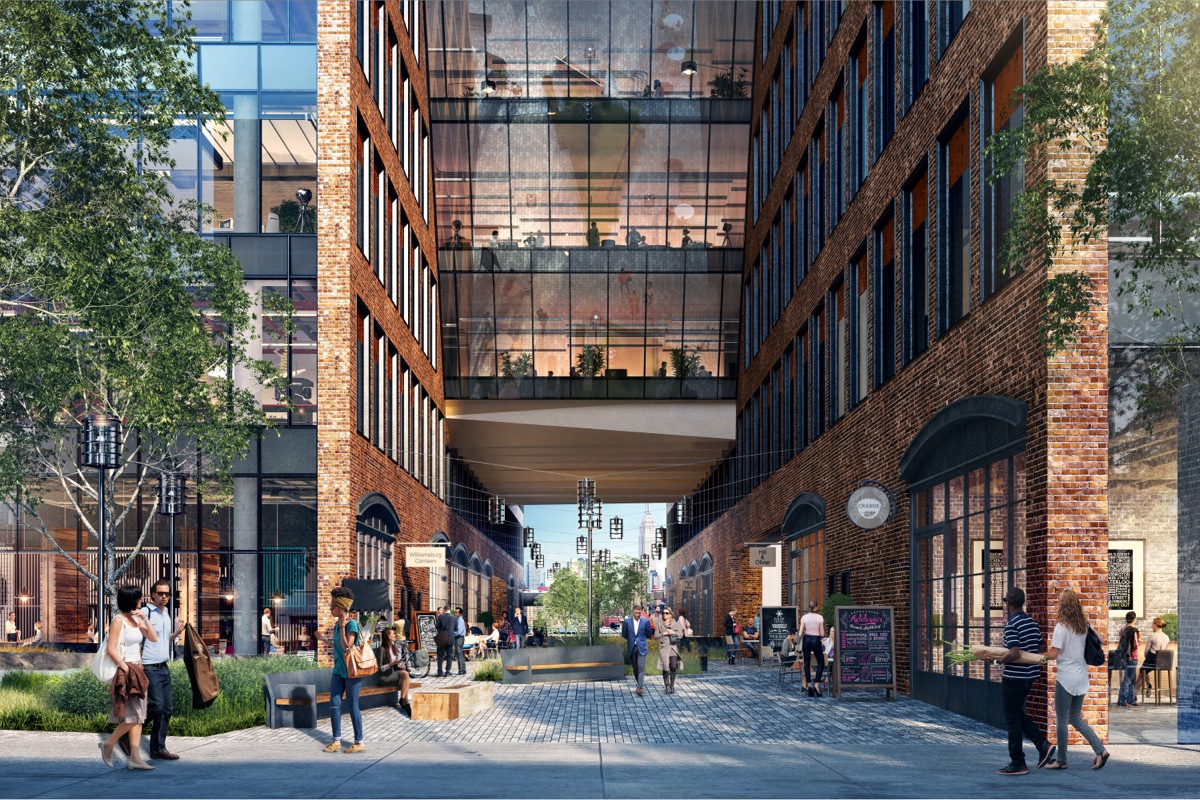
L train shutdown be damned. One of the most ambitious — and attractive — Brooklyn office developments to come along in decades is betting on reshaping the geography of the city — and where the worker of the future lives, works, and plays — by giving startups a place to flourish in Williamsburg.
But first, the block-long development at 25 Kent Avenue has to go through the lengthy public approval process known as ULURP.
On Tuesday, developers Heritage Equity Partners and Rubenstein Partners revealed new renderings and details about their plans for a 480,000-square-foot building that will occupy an entire block between Kent and Wythe avenues and North 12th and North 13th streets in Williamsburg. It’s the first privately financed new-construction office and light manufacturing space planned for Brooklyn in decades (as we noted in 2013).
While the building itself is as of right, the developers are seeking a variance from the city for the mix of uses inside. The goal is to have retail, offices, and light manufacturing and drop the requirement for community space.
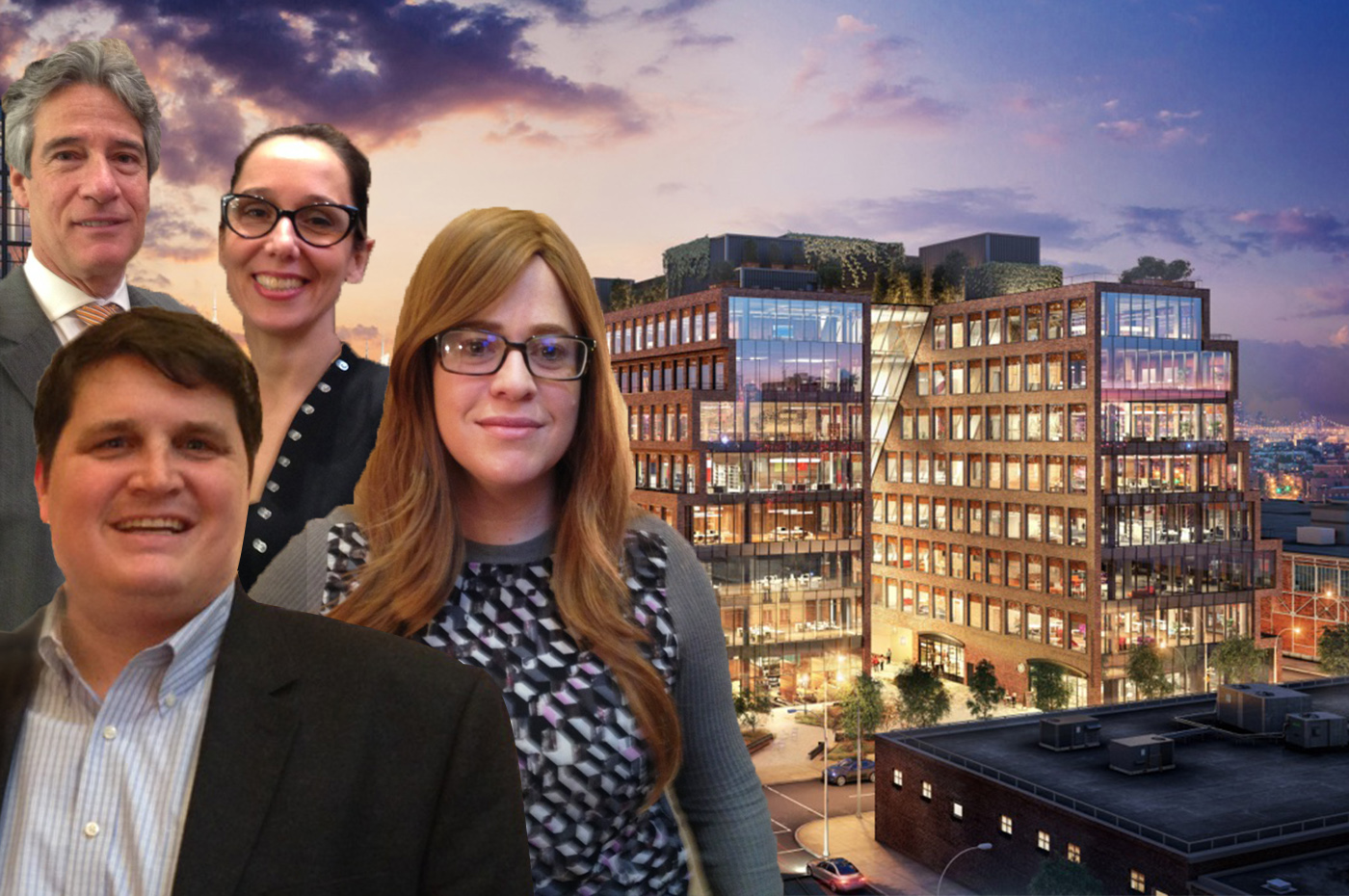
The site — where demo started early last year — is located in one of the city’s special industrial business zones, or IBZ, meant to protect the city’s high-paying manufacturing jobs. However, via a loophole in the zoning, very little manufacturing goes on in this area today.
Since the nearby Wythe Hotel opened in 2012, bars, restaurants, clubs and the Brooklyn Bowl have flourished in the IBZ, giving the Meatpacking District a run for its money and helping to boost Williamsburg’s and Brooklyn’s profile locally and internationally.
Heritage Equity Partner founder and Chief Executive Officer Toby Moskovits — who is, notably, one of the few female and Orthodox Jewish developers in the city — envisioned this project almost a decade ago, when Brooklyn was a very different place. But it will come to market at a time when office space in Brooklyn is growing.
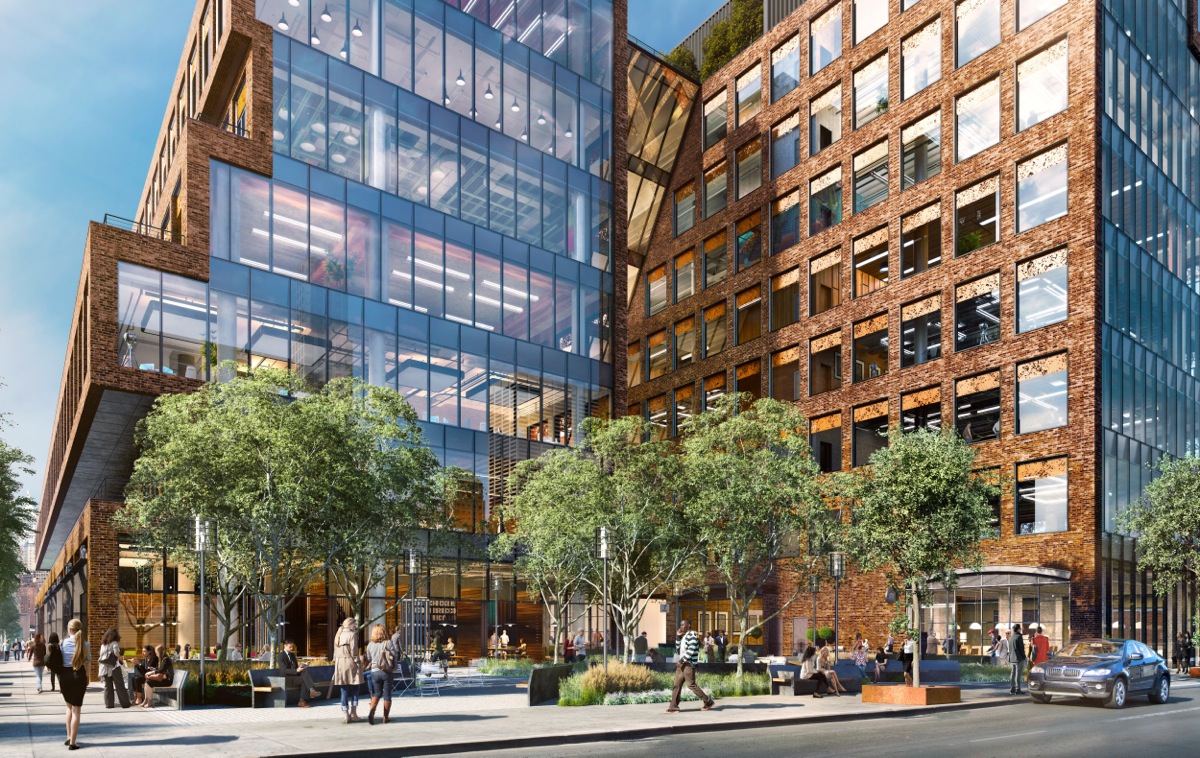
Offices bloom in Brooklyn.
Vacancies are very low in Dumbo, Downtown, and the Navy Yard now, but recent and forthcoming projects throughout the borough include the Sugar Crystal building at 10 Jay Street, Empire Stores, Dumbo Heights, Building 77 and WeWork as well as Admiral’s Row in the Navy Yard, 1000 Dean Street in Crown Heights, the Domino development in Williamsburg, City Point in Downtown Brooklyn, and Industry City in Sunset Park.
The doors at 25 Kent could open as soon as the end of 2017. The developers hope to receive approval from the city by the middle of this year and start construction soon after, they said.
They are betting local pols and residents will support the plan to bring high-paying light manufacturing and creative office jobs to the block instead of, say, bars and nightclubs. There would be no “community space,” which typically means nonprofits, schools, and medical offices.
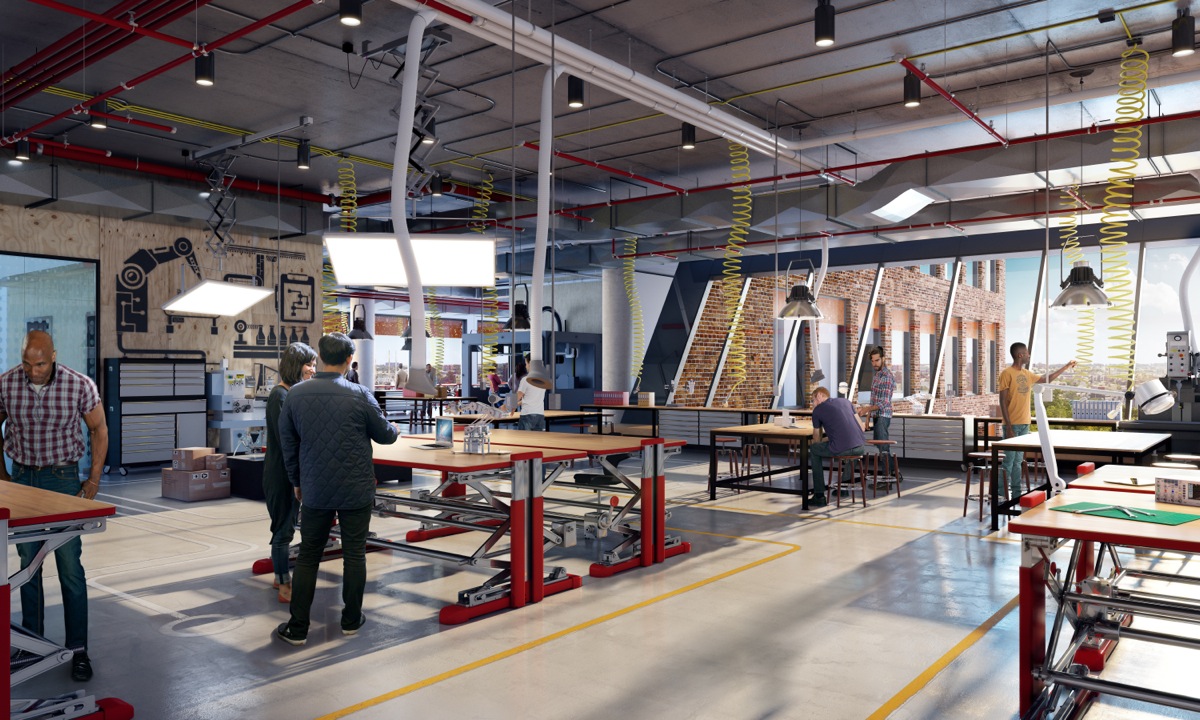
The project could also become a model for alternative uses in protected industrial zones. In fact, the city is a co-applicant with the developers for a modification of the zoning code to allow this type of special permit in these areas. Both proposals kicked off the review process with a public hearing at Community Board 1 Tuesday night.
The developers have spoken to prospective tenants, but have not signed any and would not name names. They have retained Newman Grubb Knight Frank as the leasing agent. When the building is 60 to 90 percent complete, leasing will start. Rents are also TBD, said Moskovits.
![ProEXR File Description =Attributes= cameraAperture (float): 36.000000 cameraFarClip (float): 1000.000000 cameraFarRange (float): 1000.000000 cameraFov (float): 62.822689 cameraNearClip (float): 0.000000 cameraNearRange (float): 0.000000 cameraProjection (int): 0 cameraTargetDistance (float): 200.000000 cameraTransform (m44f) channels (chlist) compression (compression): None dataWindow (box2i): [0, 0, 5999, 3999] displayWindow (box2i): [0, 0, 5999, 3999] gamma (float): 1.000000 lineOrder (lineOrder): Increasing Y pixelAspectRatio (float): 1.000000 screenWindowCenter (v2f): [0.000000, 0.000000] screenWindowWidth (float): 1.000000 =Channels= A (half) B (half) G (half) R (half)](http://www.brownstoner.com/wp-content/uploads/2016/02/commercial-development-25-kent-e.jpg)
The design references the past and future.
The design mixes historic and contemporary references. A central feature is a cobblestone walkway to draw the public through the complex, bookended by plazas and greenery.
Most of the exterior is brick with huge arched and mullioned windows reminiscent of old factory buildings. But the ends of the building are more contemporary, with glassy curtain walls.
“At the east and west ends of the building, it’s as if an old building was sliced and we put a curtain wall on,” said Joseph Brancato, a managing principal and architect at Gensler. The 5,000-person, 35-year-old architectural firm is designing the project, together with boutique firm HWKN. MPFP is handling landscape design.
The eight-story complex appears to be four buildings, but is actually one, joined on the third floor. Each floor will have big windows and high ceilings — “16-foot slab-to-slab heights,” noted Brancato — to bring in natural light.
There will be parking for 275 cars underground (instead of the normally required 1,200), retail shops on the ground floor, and light manufacturing such as small makers on the second and third floors. Offices will occupy part of the third floor and all of the rest.
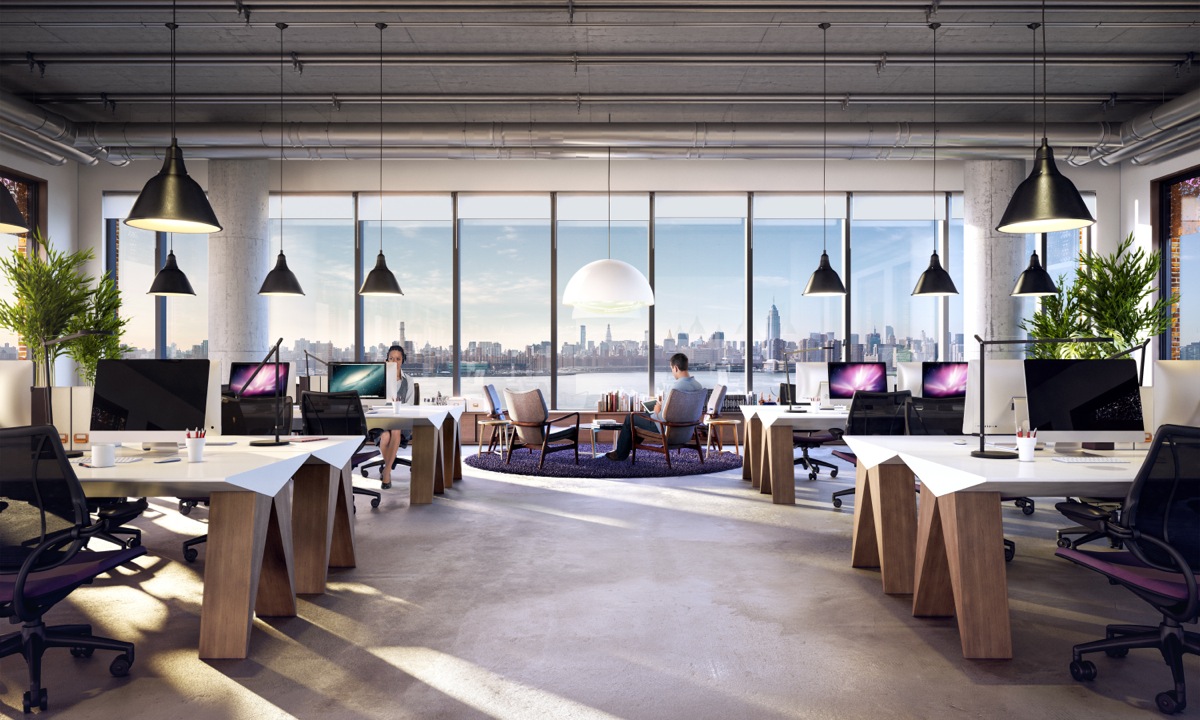
Room for startups to grow.
The building is designed to be 110 feet tall, although zoning would allow 135 feet. The stepped design allows the spaces to be modular and flexible, so it can accommodate startups at any stage of their growth, said Moskovits. Cafes and other services can be located in the center of each floor, convenient to a number of companies.
The lower floors may hold smaller companies and incubators. The developers have not yet decided whether they will rent space to a coworking company or run a shared workspace themselves.
Heritage Equity Partners intends to continue managing the building and has no plans to sell it once it is finished.
“This is Toby’s baby,” Rubenstein Partners Regional Director for New York City Jeremiah Kane told Brownstoner.
![ProEXR File Description =Attributes= cameraAperture (float): 36.000000 cameraFarClip (float): 1000.000000 cameraFarRange (float): 1000.000000 cameraFov (float): 72.872086 cameraNearClip (float): 0.000000 cameraNearRange (float): 0.000000 cameraProjection (int): 0 cameraTargetDistance (float): 200.000000 cameraTransform (m44f) channels (chlist) compression (compression): None dataWindow (box2i): [0, 0, 2999, 1999] displayWindow (box2i): [0, 0, 2999, 1999] gamma (float): 1.000000 lineOrder (lineOrder): Increasing Y pixelAspectRatio (float): 1.000000 screenWindowCenter (v2f): [0.000000, 0.000000] screenWindowWidth (float): 1.000000 =Channels= A (half) B (half) G (half) R (half)](http://www.brownstoner.com/wp-content/uploads/2016/02/commercial-development-25-kent-cafe.jpg)
But what about the L train shutdown?
The building could start leasing or open during the L train shutdown — which could run anywhere from one to seven years, according to the latest projections.
Heritage Equity Partners has attended every meeting about the issue and wants the MTA to understand “how impactful and harmful any such shutdown would be,” said Moskovits.

Entrepreneurs in Brooklyn.
Moskovits started her career working in private equity and venture capital, which brought her into close contact with startups. Based in Williamsburg, Heritage Equity Partners concentrates on commercial developments and rentals, including Spire Lofts in Manhattan and a similar office and light industrial project in the Bushwick loft area at 215 Moore Street.
In December, the firm bought out previous partner Rabsky Group and brought in Rubenstein, a real estate investment management and advisory firm with experience in development, construction and tenancy.
The developers think the complex will attract Brooklyn startups as well as companies based in Manhattan that want to be a closer to their workforce. “It’s a different environment out here, and we think it’s hugely appealing,” said Kane, citing interesting restaurants and “people who want to walk or bike to work.”
The complex can help build Williamsburg by “giving economic opportunity to small businesses and people in the community who need jobs,” said Moskovits. It could be especially appealing to Brooklyn’s many female entrepreneurs who want to be close to their families, she added.
“We believe passionately in what we are doing,” said Moskovits, who grew up in Brooklyn and whose grandfather rented a factory on Kent and North 10th for his rag business. “We’re of the community and we are entrepreneurs. Our goal is to tenant the building in a way that makes sense for the neighborhood.”
[Renderings by Steelblue | Photos by Cate Corcoran]

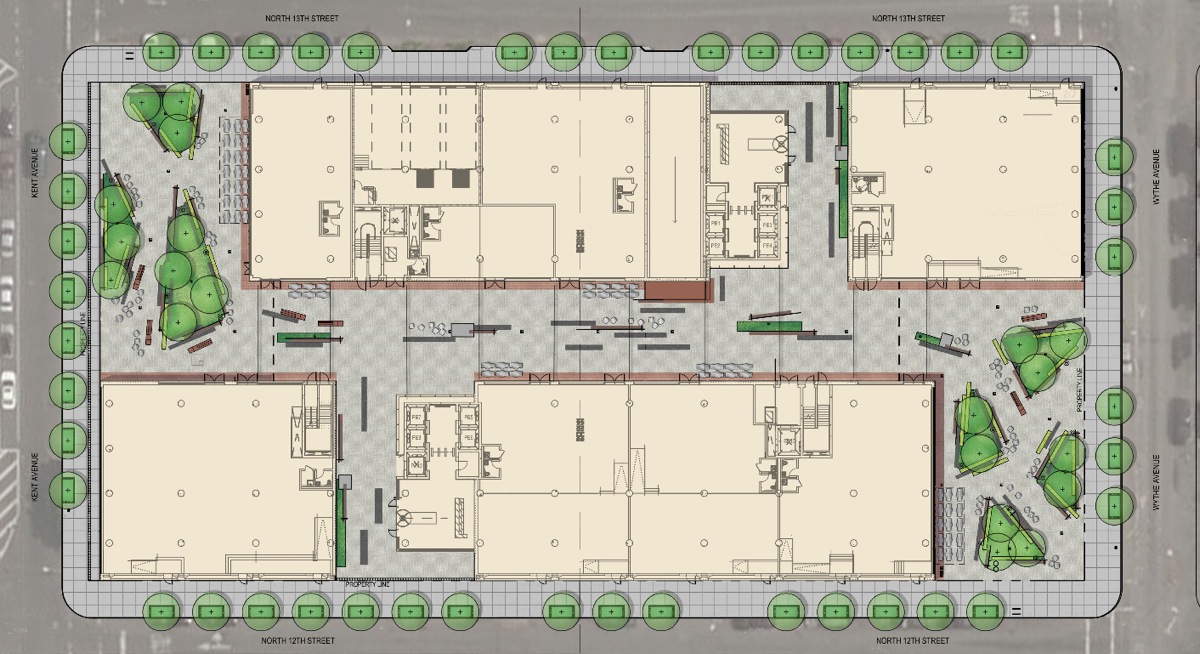
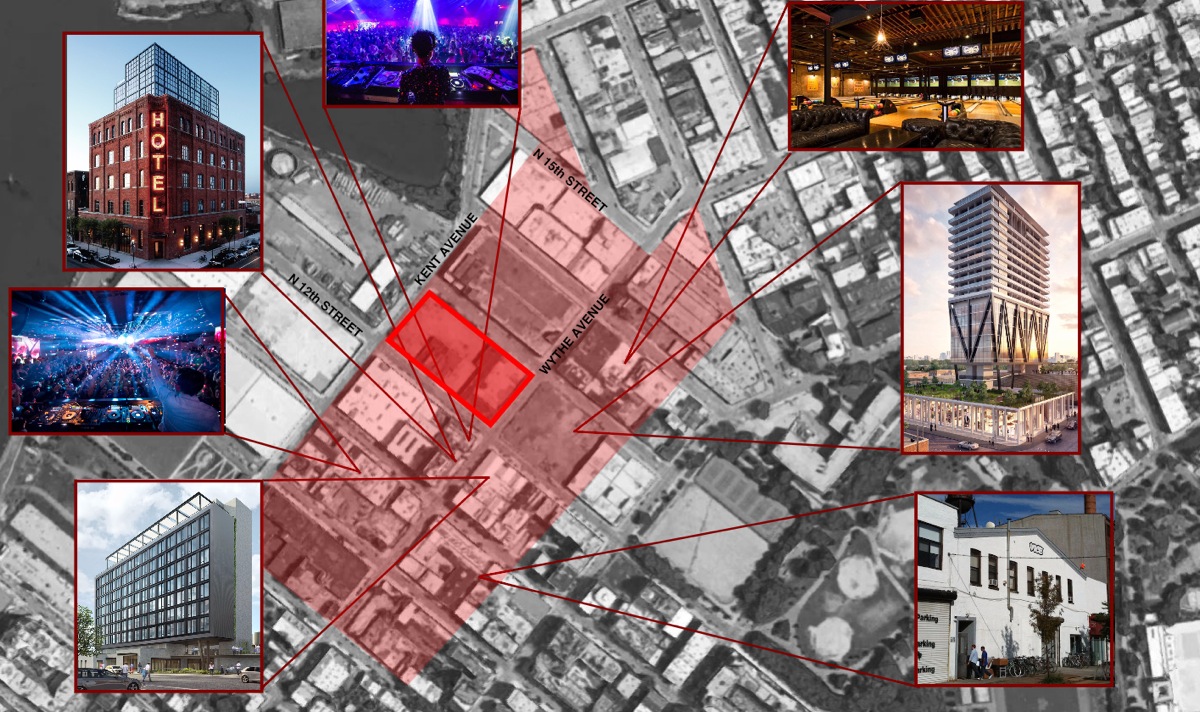
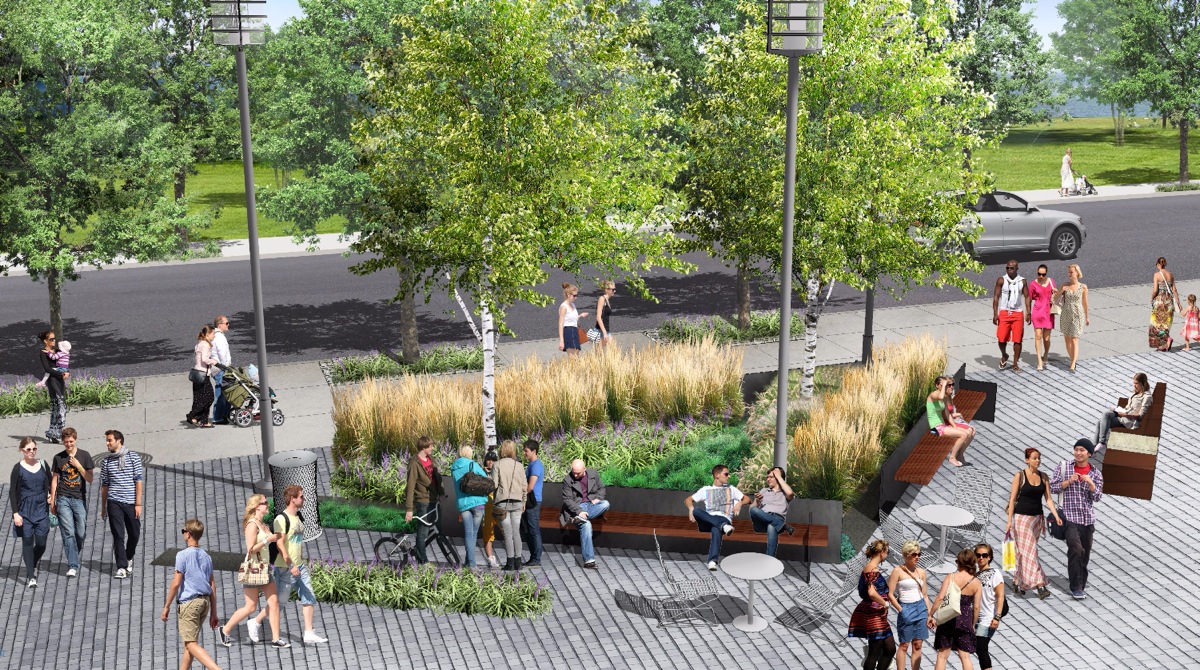
Related Stories
Will Your Office Move to Brooklyn? Developers Are Betting on It
These Seven Hotels Will Turn Williamsburg Into Even More of a Nightlife Mecca
Demo Starts for Block-Size Office Building on Kent in Williamsburg
Email tips@brownstoner.com with further comments, questions or tips. Follow Brownstoner on Twitter and Instagram, and like us on Facebook.
[sc:daily-email-signup ]
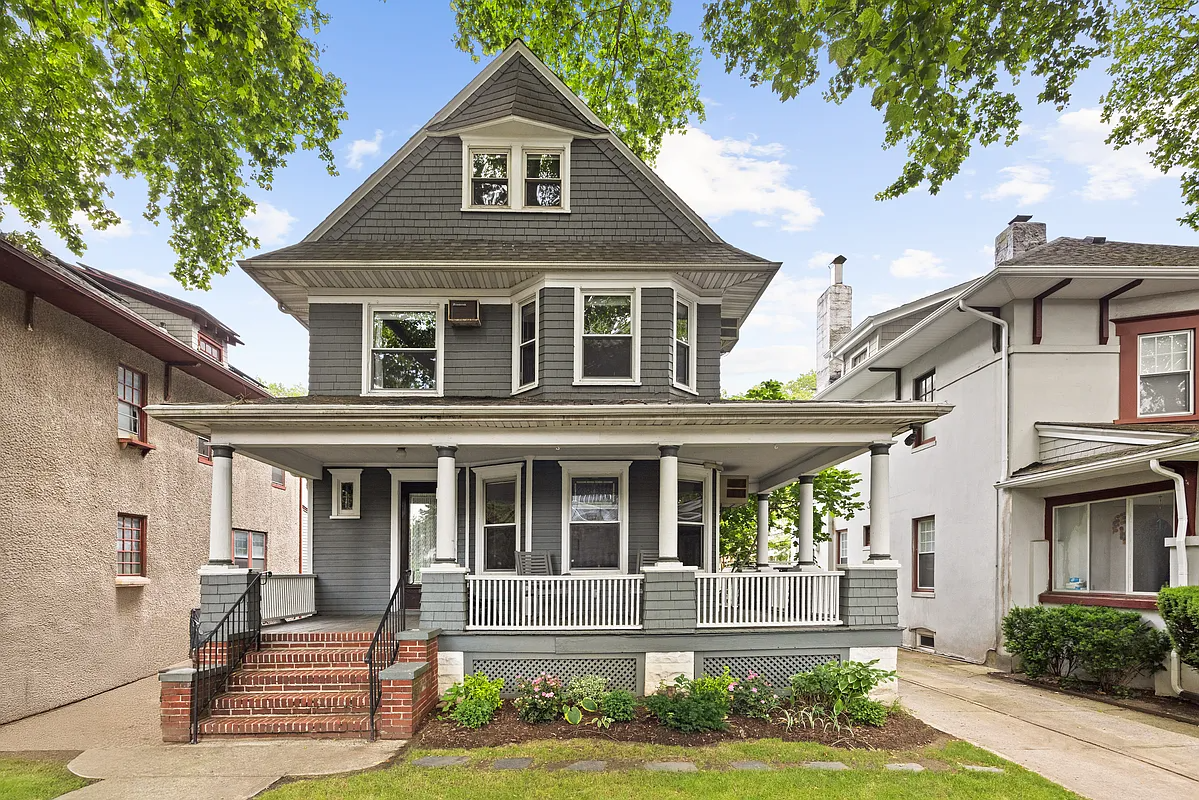
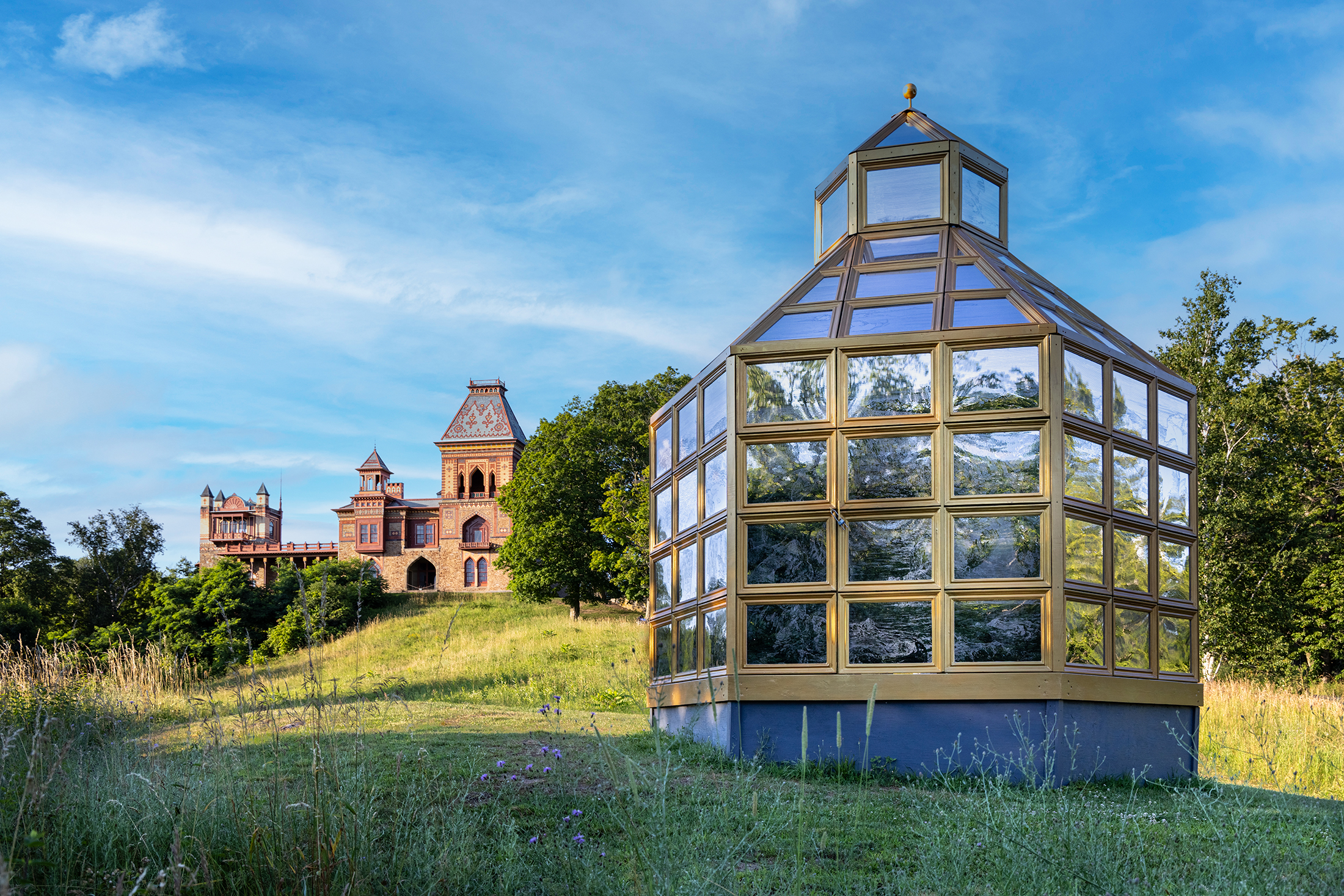
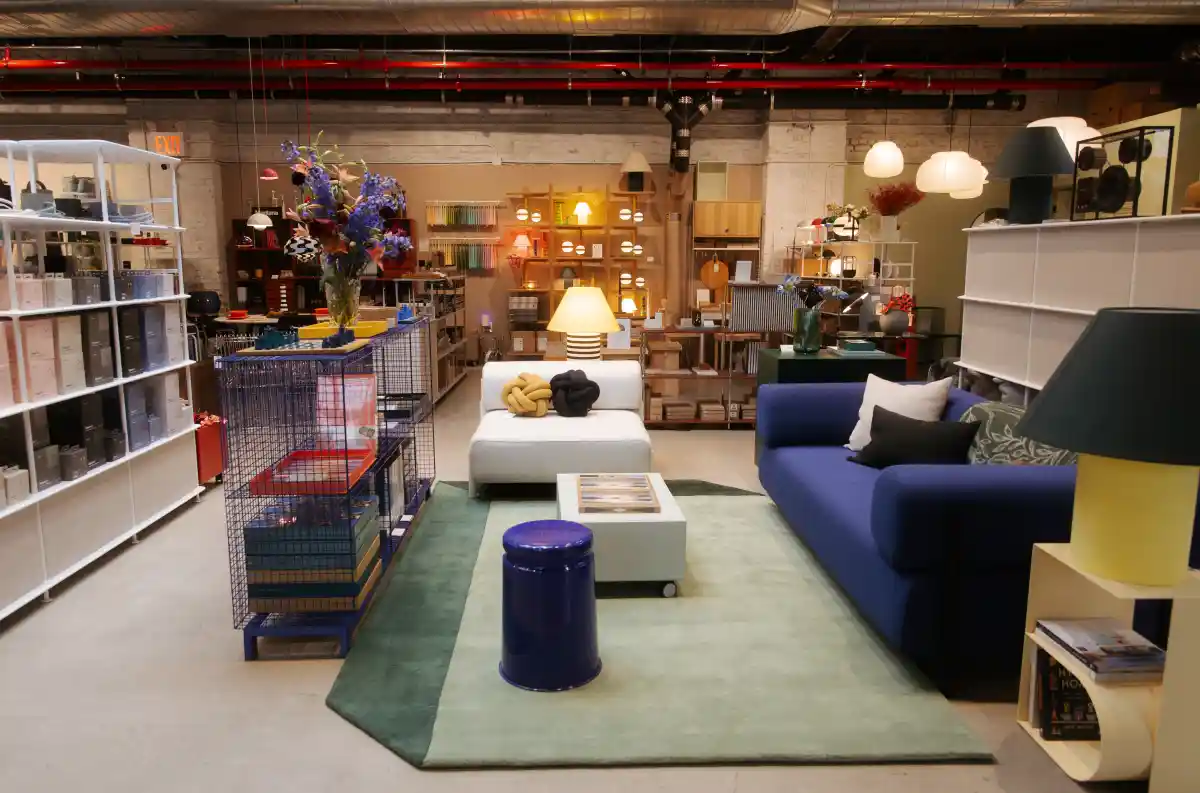
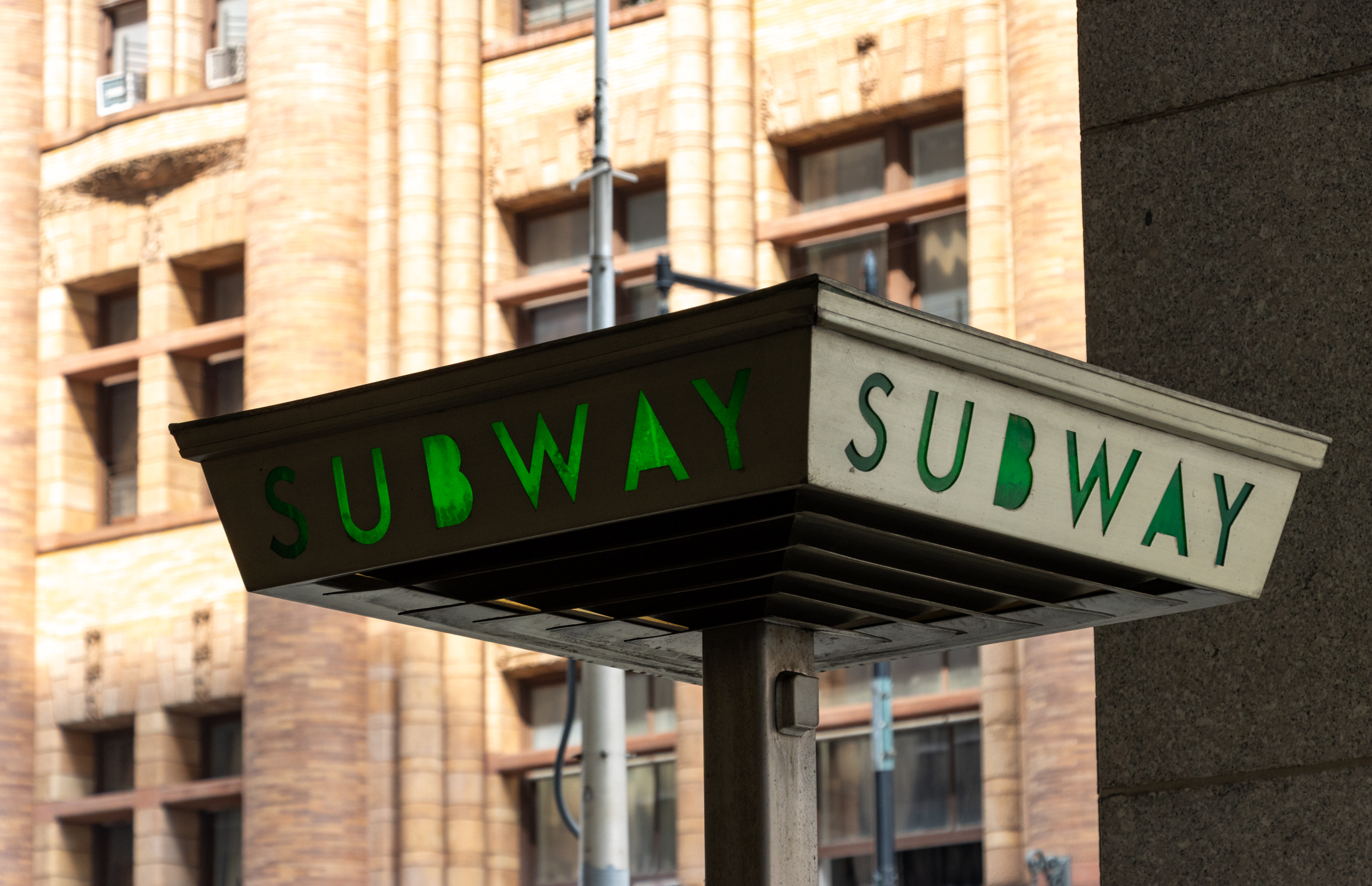
What's Your Take? Leave a Comment